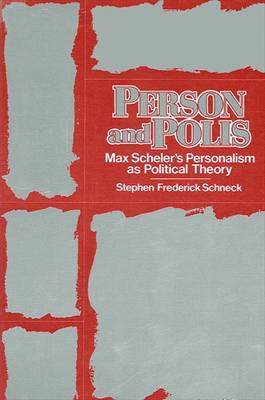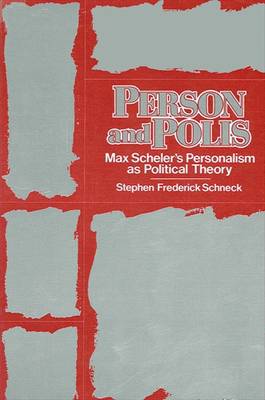
Door een staking bij bpost kan je online bestelling op dit moment iets langer onderweg zijn dan voorzien. Dringend iets nodig? Onze winkels ontvangen jou met open armen!
- Afhalen na 1 uur in een winkel met voorraad
- Gratis thuislevering in België vanaf € 30
- Ruim aanbod met 7 miljoen producten
Door een staking bij bpost kan je online bestelling op dit moment iets langer onderweg zijn dan voorzien. Dringend iets nodig? Onze winkels ontvangen jou met open armen!
- Afhalen na 1 uur in een winkel met voorraad
- Gratis thuislevering in België vanaf € 30
- Ruim aanbod met 7 miljoen producten
Zoeken
€ 51,95
+ 103 punten
Omschrijving
Martin Heidegger cited him as "the most potent philosophical power ... in all of contemporary philosophy." Ortega y Gasset called him "the first man of genius, the Adam of the new Paradise." Writing at a crucial time in intellectual history, his influence has extended to persons as diverse as Dietrich von Hildebrand, Maurice Merleau-Ponty, Karol Wojtyla, Jurgen Habermas, Ernst Bloch, and members of the generation of thinkers that developed in the German universities during the Weimar years. Despite this far-reaching impact, the social theory and philosophy of Max Scheler have never been examined for the significance of their political thought.
This book opens the possibility of deriving a contemporary political theory from Scheler's philosophy and social theory, based on his understanding of the person, the community, and the significant new directions these elements suggest. Standing at some distance from modern liberalism, conservatism, and Marxism, both in their bourgeois and Enlightenment varieties, Scheler's personalism has its roots in the rich admixture of life philosophy and phenomenology that gave rise to Martin Heidegger's early philosophy. It is a philosophical anthropology founded on Scheler's own realist phenomenology, sociology of knowledge, and non-formal ethics.
The book considers Scheler's many works and includes translations and reviews of unpublished materials. It includes an extensive bibliography of primary and secondary name sources.
This book opens the possibility of deriving a contemporary political theory from Scheler's philosophy and social theory, based on his understanding of the person, the community, and the significant new directions these elements suggest. Standing at some distance from modern liberalism, conservatism, and Marxism, both in their bourgeois and Enlightenment varieties, Scheler's personalism has its roots in the rich admixture of life philosophy and phenomenology that gave rise to Martin Heidegger's early philosophy. It is a philosophical anthropology founded on Scheler's own realist phenomenology, sociology of knowledge, and non-formal ethics.
The book considers Scheler's many works and includes translations and reviews of unpublished materials. It includes an extensive bibliography of primary and secondary name sources.
Specificaties
Betrokkenen
- Auteur(s):
- Uitgeverij:
Inhoud
- Aantal bladzijden:
- 188
- Taal:
- Engels
- Reeks:
Eigenschappen
- Productcode (EAN):
- 9780887063398
- Verschijningsdatum:
- 2/01/1987
- Uitvoering:
- Paperback
- Formaat:
- Trade paperback (VS)
- Afmetingen:
- 147 mm x 229 mm
- Gewicht:
- 258 g

Alleen bij Standaard Boekhandel
+ 103 punten op je klantenkaart van Standaard Boekhandel
Beoordelingen
We publiceren alleen reviews die voldoen aan de voorwaarden voor reviews. Bekijk onze voorwaarden voor reviews.











